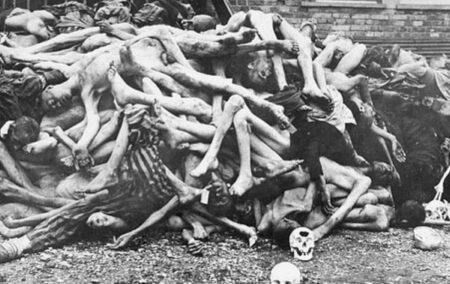AfriForum has for many years been waging a lonely war against South African journalists and “fact-checkers” peddling the myth of white genocide but attributing it to AfriForum. The Press Council has likely grown tired of ordering press outlets to cease this disinformation campaign.
The discourse around “white genocide,” like so many other discourses, is fraught.
In South Africa today there exists an environment wherein genocidal rhetoric – more often than not directed at racial minorities, primarily whites – is accepted and even celebrated. That does not mean genocide is taking place, however.
If there were a “white genocide” taking place, South African whites like me, but particularly the two or three whites who actually believe it to be occurring, would know about it. There would be little time to tweet about it or speak to the foreign press. Leaders in the organised Afrikaner community would also probably be the first to be killed, long before news reached ordinary whites.
That is, if such a thing were happening.
The risks of peddling the myth
I have seen and heard claims of white genocide for at least a decade, but almost certainly longer. And yet, for as long as I can remember, the core of the cultural institutions associated with Afrikaners thrive, as do the white English business executives I see jogging down the streets of Sandton.
Civil rights groups and their leaders, specifically, have not been eliminated.
This means that, for at least a decade, claims of white genocide have been false.
In isolation, this might appear harmlessly silly, but for at least some influential people around the world, a white genocide has been occurring in South Africa for a long time. Every now and then you see them talking about it.
This raises the question: if genocide were ever to truly happen, what would – in the minds of these people – be the difference? To them, nothing has changed: genocide has been ongoing since, say, the 2000s. They would regard it as just another sunny day in South Africa if some people were to begin saying that it is now “really” happening.
“Genocide” is a fighting word
Genocide is a term that must necessarily invite immediate corrective action.
If there were to be a white genocide in South Africa – or any genocide against anyone – it would demand swift intervention by the international community without pretence or symbolism. This term “genocide” must be reserved for the real event, not thrown around and devalued.
Every time it is used in vain, it loses some of its potency. And it has lost a lot already.
If South Africa truly believed that a genocide (as opposed to, potentially, excessive force leading to excessive collateral damage) was occurring in Palestine, for example, going to the International Court of Justice would be one of the most inappropriate things to do.
Sending a small number of our highly competent special forces to pull off a decapitation strike – or any kind of military action, really – against those responsible, would be more appropriate.
There are dozens, if not hundreds, of steps that can be taken that are more appropriate, when one believes genocide is occurring in earnest. However, suiting up, getting a court date complete with lunch breaks, writing press releases, and playing by some set of rules of decorum, is not how one responds to real genocide.
If you devalue “genocide” so much that every time a foreign or international authority checks to verify your claim and finds nothing of substance, you are ensuring that eventually the verifications will cease.
AfriForum is doing precisely the responsible thing as a civil rights organisation representing minorities in general and the Afrikaner minority in particular, to set the record straight: there is no white genocide in South Africa, nor do we claim there is by pointing out the real policy discrimination suffered by racial minorities.
It would have been reckless and irresponsible to turn the volume dial up to 11 – because one can probably only do so once with any real credibility.
What purpose?
This is why we also need to be careful about how “white genocide” has become a popular narrative not only among the press elite, but specifically among South Africa’s radical black supremacists.
They talk more about this idea than any organised group associated with the white population. One might wonder: why?
The likely answer is that they seek to strawman AfriForum and sap it of credibility among the international community. But for some, it might be to devalue claims of “genocide” per se in preparation for future plans that Julius Malema testified in open court might eventually need to be carried out.
Black supremacist groups represent a minority of politically conscious radicals, but that they might be doing this is something to consider.
This is especially important after the Constitutional Court’s recent decision in the “Kill the Boer” matter. The Court confirmed a worrying but relatively old convention: that genocidal rhetoric by political leaders in South Africa is lawful and acceptable.
People like Malema and Andile Mngxitama would have long been behind bars in civilised societies, but remain at large – members of Parliament in fact – in South Africa, and they are allowed to muster significant followings.
That politicians like Malema and Mngxitama are accepted, celebrated, and successful in South African politics is reason enough to be concerned, without a hysterical claim that a white genocide is ongoing.
Most South Africans, obviously, do not harbour genocidal intent. But the fact that these powerful politicians are deemed acceptable by the general public speaks volumes – it says something. We should be aware and vigilant about whatever that something is.
[Photo: Bodies outside the crematorium at Dachau, Germany, April–May 1945/United States Holocaust Memorial Museum]
The views of the writer are not necessarily the views of the Daily Friend or the IRR.
If you like what you have just read, support the Daily Friend .

